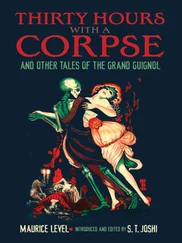Генри Джеймс - Lady Barbarina, The Siege of London, An International Episode, and Other Tales
Здесь есть возможность читать онлайн «Генри Джеймс - Lady Barbarina, The Siege of London, An International Episode, and Other Tales» — ознакомительный отрывок электронной книги совершенно бесплатно, а после прочтения отрывка купить полную версию. В некоторых случаях можно слушать аудио, скачать через торрент в формате fb2 и присутствует краткое содержание. Жанр: foreign_prose, literature_19, foreign_antique, на английском языке. Описание произведения, (предисловие) а так же отзывы посетителей доступны на портале библиотеки ЛибКат.
- Название:Lady Barbarina, The Siege of London, An International Episode, and Other Tales
- Автор:
- Жанр:
- Год:неизвестен
- ISBN:нет данных
- Рейтинг книги:4 / 5. Голосов: 1
-
Избранное:Добавить в избранное
- Отзывы:
-
Ваша оценка:
- 80
- 1
- 2
- 3
- 4
- 5
Lady Barbarina, The Siege of London, An International Episode, and Other Tales: краткое содержание, описание и аннотация
Предлагаем к чтению аннотацию, описание, краткое содержание или предисловие (зависит от того, что написал сам автор книги «Lady Barbarina, The Siege of London, An International Episode, and Other Tales»). Если вы не нашли необходимую информацию о книге — напишите в комментариях, мы постараемся отыскать её.
Lady Barbarina, The Siege of London, An International Episode, and Other Tales — читать онлайн ознакомительный отрывок
Ниже представлен текст книги, разбитый по страницам. Система сохранения места последней прочитанной страницы, позволяет с удобством читать онлайн бесплатно книгу «Lady Barbarina, The Siege of London, An International Episode, and Other Tales», без необходимости каждый раз заново искать на чём Вы остановились. Поставьте закладку, и сможете в любой момент перейти на страницу, на которой закончили чтение.
Интервал:
Закладка:
“You mean the rider’s too small,” her husband returned. “He’s mounted on his millions.”
“Is it really millions?”
“Seven or eight, they tell me.”
“How disgusting!” It was so that Mrs. Freer usually spoke of the large fortunes of the day. “I wish he’d see us,” she added.
“He does see us, but he doesn’t like to look at us. He’s too conscious. He isn’t easy.”
“Too conscious of his big horse?”
“Yes and of his big fortune. He’s rather ashamed of that.”
“This is an odd place to hang one’s head in,” said Mrs. Freer.
“I’m not so sure. He’ll find people here richer than himself, and other big horses in plenty, and that will cheer him up. Perhaps too he’s looking for that girl.”
“The one we heard about? He can’t be such a fool.”
“He isn’t a fool,” said Dexter Freer. “If he’s thinking of her he has some good reason.”
“I wonder what Mary Lemon would say,” his wife pursued.
“She’d say it was all right if he should do it. She thinks he can do no wrong. He’s immensely fond of her.”
“I shan’t be sure of that,” said Mrs. Freer, “if he takes home a wife who’ll despise her.”
“Why should the girl despise her? She’s a delightful woman.”
“The girl will never know it—and if she should it would make no difference: she’ll despise everything.”
“I don’t believe it, my dear; she’ll like some things very much. Every one will be very nice to her.”
“She’ll despise them all the more. But we’re speaking as if it were all arranged. I don’t believe in it at all,” said Mrs. Freer.
“Well, something of the sort—in this case or in some other—is sure to happen sooner or later,” her husband replied, turning round a little toward the back-water, as it were, formed, near the entrance to the Park, by the confluence of the two great vistas of the Drive and the Row.
Our friends had turned their backs, as I have said, to the solemn revolution of wheels and the densely-packed mass of spectators who had chosen that aspect of the show. These spectators were now agitated by a unanimous impulse: the pushing-back of chairs, the shuffle of feet, the rustle of garments and the deepening murmur of voices sufficiently expressed it. Royalty was approaching—royalty was passing—royalty had passed. Mr. Freer turned his head and his ear a little, but failed to alter his position further, and his wife took no notice of the flurry. They had seen royalty pass, all over Europe, and they knew it passed very quickly. Sometimes it came back; sometimes it didn’t; more than once they had seen it pass for the last time. They were veteran tourists and they knew as perfectly as regular attendants at complicated church-services when to get up and when to remain seated. Mr. Freer went on with his proposition. “Some young fellow’s certain to do it, and one of these girls is certain to take the risk. They must take risks over here more and more.”
“The girls, I’ve no doubt, will be glad enough; they have had very little chance as yet. But I don’t want Jackson to begin.”
“Do you know I rather think I do,” said Dexter Freer. “It will be so very amusing.”
“For us perhaps, but not for him. He’ll repent of it and be wretched. He’s too good for that.”
“Wretched never! He has no capacity for wretchedness, and that’s why he can afford to risk it.”
“He’ll have to make great concessions,” Mrs. Freer persisted.
“He won’t make one.”
“I should like to see.”
“You admit, then, that it will be amusing: all I contend for,” her husband replied. “But, as you say, we’re talking as if it were settled, whereas there’s probably nothing in it after all. The best stories always turn out false. I shall be sorry in this case.”
They relapsed into silence while people passed and repassed them—continuous successive mechanical, with strange facial, strange expressional, sequences and contrasts. They watched the procession, but no one heeded them, though every one was there so admittedly to see what was to be seen. It was all striking, all pictorial, and it made a great composition. The wide long area of the Row, its red-brown surface dotted with bounding figures, stretched away into the distance and became suffused and misty in the bright thick air. The deep dark English verdure that bordered and overhung it looked rich and old, revived and refreshed though it was by the breath of June. The mild blue of the sky was spotted with great silvery clouds, and the light drizzled down in heavenly shafts over the quieter spaces of the Park, as one saw them beyond the Row. All this, however, was only a background, for the scene was before everything personal; quite splendidly so, and full of the gloss and lustre, the contrasted tones, of a thousand polished surfaces. Certain things were salient, pervasive—the shining flanks of the perfect horses, the twinkle of bits and spurs, the smoothness of fine cloth adjusted to shoulders and limbs, the sheen of hats and boots, the freshness of complexions, the expression of smiling talking faces, the flash and flutter of rapid gallops. Faces were everywhere, and they were the great effect—above all the fair faces of women on tall horses, flushed a little under their stiff black hats, with figures stiffened, in spite of much definition of curve, by their tight-fitting habits. Their well-secured helmets, their neat compact heads, their straight necks, their firm tailor-made armour, their frequent hardy bloom, all made them look singularly like amazons about to ride a charge. The men, with their eyes before them, with hats of undulating brim, good profiles, high collars, white flowers on their chests, long legs and long feet, had an air more elaboratively decorative, as they jolted beside the ladies, always out of step. These were the younger types; but it was not all youth, for many a saddle sustained a richer rotundity, and ruddy faces with short white whiskers or with matronly chins looked down comfortably from an equilibrium that seemed moral as well as physical. The walkers differed from the riders only in being on foot and in looking at the riders more than these looked at them; for they would have done as well in the saddle and ridden as the others ride. The women had tight little bonnets and still tighter little knots of hair; their round chins rested on a close swathing of lace or in some cases on throttling silver chains and circlets. They had flat backs and small waists, they walked slowly, with their elbows out, carrying vast parasols and turning their heads very little to the right or the left. They were amazons unmounted, quite ready to spring into the saddle. There was a great deal of beauty and a diffused look of happy expansion, all limited and controlled, which came from clear quiet eyes and well-cut lips, rims of stout vessels that didn’t overflow and on which syllables were liquid and sentences brief. Some of the young men, as well as the women, had the happiest proportions and oval faces—faces in which line and colour were pure and fresh and the idea of the moment far from intense.
“They’re often very good-looking,” said Mr. Freer at the end of ten minutes. “They’re on the whole the finest whites.”
“So long as they remain white they do very well; but when they venture upon colour!” his wife replied. She sat with her eyes at the level of the skirts of the ladies who passed her, and she had been following the progress of a green velvet robe enriched with ornaments of steel and much gathered up in the hands of its wearer, who, herself apparently in her teens, was accompanied by a young lady draped in scant pink muslin, a tissue embroidered esthetically with flowers that simulated the iris.
“All the same, in a crowd, they’re wonderfully well turned out,” Dexter Freer went on—“lumping men and women and horses and dogs together. Look at that big fellow on the light chestnut: what could be more perfect? By the way, it’s Lord Canterville,” he added in a moment and as if the fact were of some importance.
Читать дальшеИнтервал:
Закладка:
Похожие книги на «Lady Barbarina, The Siege of London, An International Episode, and Other Tales»
Представляем Вашему вниманию похожие книги на «Lady Barbarina, The Siege of London, An International Episode, and Other Tales» списком для выбора. Мы отобрали схожую по названию и смыслу литературу в надежде предоставить читателям больше вариантов отыскать новые, интересные, ещё непрочитанные произведения.
Обсуждение, отзывы о книге «Lady Barbarina, The Siege of London, An International Episode, and Other Tales» и просто собственные мнения читателей. Оставьте ваши комментарии, напишите, что Вы думаете о произведении, его смысле или главных героях. Укажите что конкретно понравилось, а что нет, и почему Вы так считаете.












